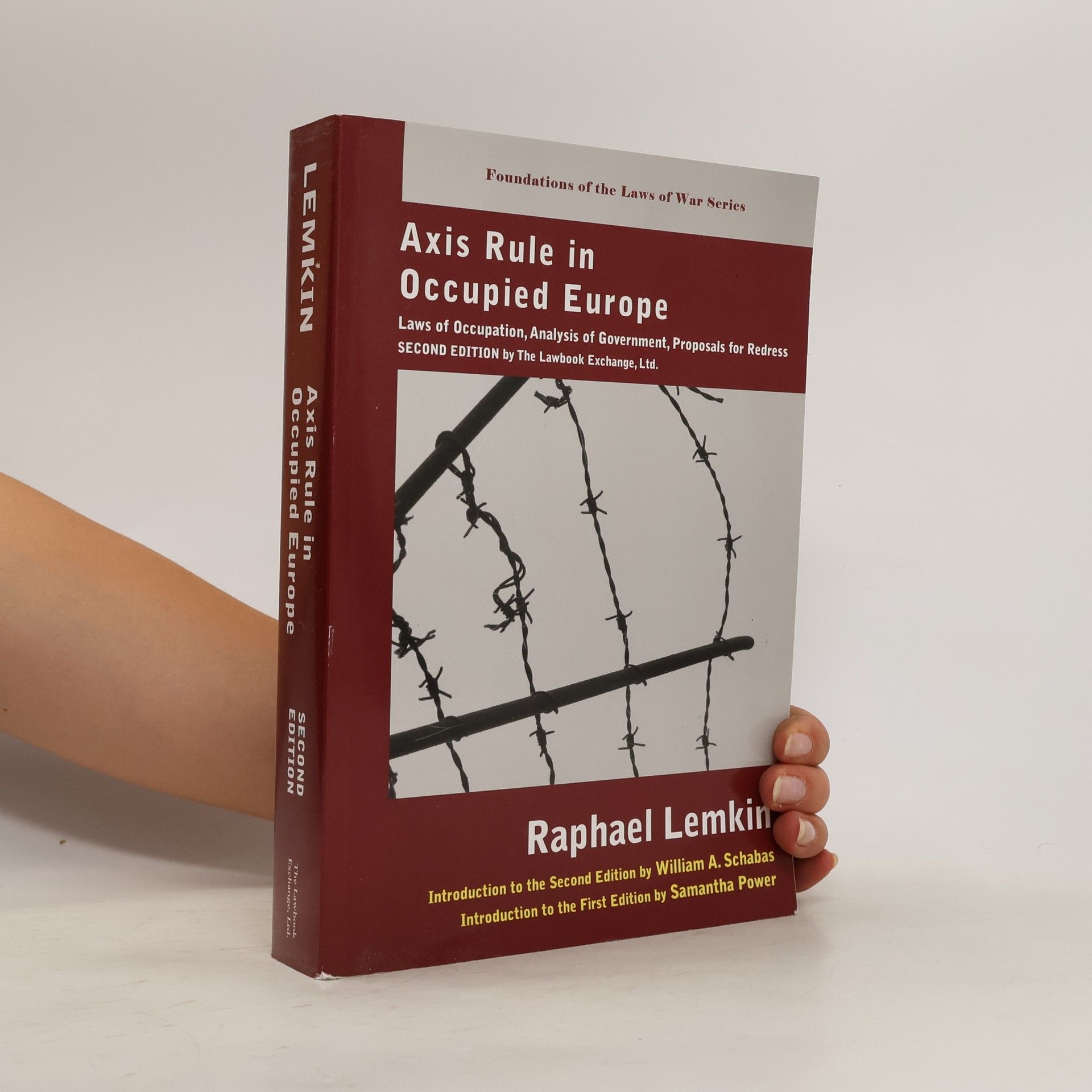"In this pathbreaking study Polish emigre Raphael Lemkin [1900-1959] coined the term "genocide" and defined it is a subject of international law. While the term has come to mean the extermination of a people, Lemkin used it to describe all programs that sought to increase "Aryan" birthrate while working to exterminate the social, cultural and economic independence of non-Germanic peoples.
Raphael Lemkin Livres
Raphaël Lemkin, avocat d'origine polono-juive, est surtout connu pour avoir inventé le terme 'génocide' et avoir initié la Convention sur le génocide. Lemkin a forgé le mot génocide en 1943 ou 1944 à partir du grec 'genos' (famille, tribu ou race) et du suffixe latin '-cide' (tuer). Entre 1953 et 1957, Lemkin a travaillé directement avec des représentants de plusieurs gouvernements, comme l'Égypte, pour interdire le génocide dans les codes pénaux nationaux de ces pays. Lemkin a également travaillé avec une équipe d'avocats de délégations arabes aux Nations Unies pour construire un dossier visant à poursuivre des responsables français pour génocide en Algérie.



The book presents a groundbreaking analysis by Raphael Lemkin, who introduced and defined the concept of genocide within the context of international law. It explores how Lemkin's definition encompassed not only extermination but also the systematic efforts to undermine the social and cultural independence of targeted groups. This work laid the foundation for prosecuting war crimes, particularly against the Nazis, and established a framework for addressing crimes against humanity. The second edition includes introductions by William A. Schabas and Samantha Power, enhancing its historical significance.
Die Suche nach einem passenden Begriff für die Gräueltaten der Nazis führte den Juristen und Humanisten Raphael Lemkin zur Prägung des Begriffs "Genozid" im Jahr 1943. Durch seine umfassenden Studien in Philosophie, Philologie und Recht sowie sein persönliches Engagement spielte Lemkin eine entscheidende Rolle bei der Entstehung der Genozidkonvention der Vereinten Nationen von 1948. Sein Leben und Werk beleuchten die Verbindung zwischen Sprache, Recht und dem Schutz der Menschheit vor unvorstellbarem Leid.